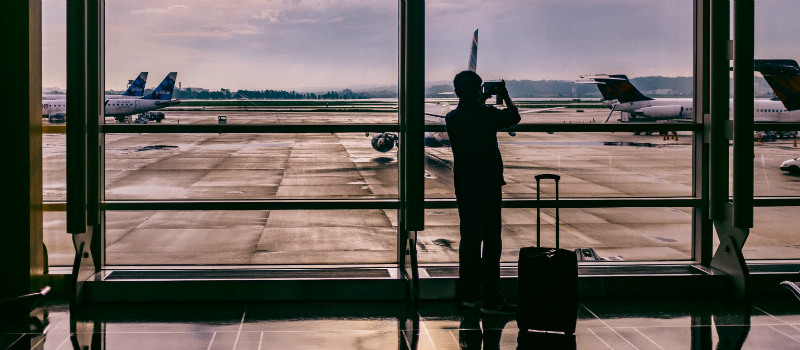New policy extends the visa-free period for foreigners in transit
As of January 1st, 2019, foreigners from certain countries will be eligible for a 144-hour visa-free stay in more Chinese cities than before, as reported by the National Immigration Administration.
The new arrangement extends the existing 72-hour visa-free period for foreigners in several cities to 144 hours as of 2019. In order to enjoy the visa-free stay, travelers must have valid travel documents and onward travel booked within 144 hours.
Take a look at some of our previous posts: China’s Outbound Travel Market soon accessible to WFOEs
More cities offering a 6 day visa-free transit
Initial reports of the updated policy listed Xiamen, Qingdao, Wuhan, Chengdu and Kunming as cities extending their visa-free transit policy. The updated policy extends the currently 72-hour visa-free transit in the above cities. The news were soon followed by an update, adding Chengdu to the cities applying the policy on New Year’s day.
These six cities expand the 144-hour visa-free policy, which had previously successfully been applied in Shanghai, Zhejiang, Jiangsu and the Beijing-Hebei-Tianjin region. These regions have already been allowing transit passengers to stay visa-free up to six days in total. The extended visa-free stay aims to provide more convenience for foreigners to enter-leave China for short-term tourism or business trips, as the National Immigration Administration mentioned.
People of the following 53 listed nationalities with valid travel documents and onward travel booked for within 144 hours are eligible for the visa-free policy:
The visa-free transit policy was launched in 2013, where eligible foreigners were first allowed to stay in 18 selected cities visa-free for 72 hours.
What is an eligible transit route?
Generally, the starting point and the ending point of the travel itinerary must be countries/regions out of Mainland China.
Thus, an example route of:
- A -> B: one of the allowed areas in Mainland China -> C
would be eligible, if A and C are outside of Mainland China. Note, that Hong Kong, Macau and Taiwan may be either A or C. Thus, a route „France – Shanghai – Hong Kong“ is just as acceptable as „UK – Hangzhou – Vietnam“.
Destination B refers to only one of the eligible areas in China. It may not be a cross-area visa-free tour among the available areas across China. Additionally, the international flights flying in and out of China (from A to B and then from B to C) must be non-stop, without a stopover anywhere in Mainland China.
Be aware of the regulations
While an individual is passing on a visa-free transit, they must be aware of the regulations and laws that apply. An individual is not allowed to leave the specified area of stay, and they may not overstay their visa-exemption period. Within the first 24 hours of their entry, the foreign national must take care of registering their residence address. This can be done either with the local public security bureau or a foreigner service station. Those providing the foreign national with residence can complete the registration on their behalf. Similarly, if a foreign national decides to reside at a hotel, the hotel must complete their registration for them.
There may be cases of force majeure, where an individual is forced to stay longer than the 144 hours within the visa-exemption timeframe. In this case, they must submit an application to the exit-entry administration department of a public security bureau for corresponding stay or residence documents.
Visa-free transit application
Applying for a visa-free transit is simple. Just inform the carrier upon boarding. Once the arrival/departure card has been filled in, apply for a 144-hour visa-free stay permit upon arrival at one of the eligible city’s airports. There will be a separate counter at the immigration inspection for the application. Once approved, the permit will be stamped in your passport, indicating the allowed stay time. You will need to present your passport, a ticket to a third country with a confirmed seat and date and a fully completed arrival/departure card. Once you have the permit, you can continue as usual by claiming your luggage, going through customs and leaving the airport.
Online application for Shanghai available
As an additional update, from 1 November 2018, Shanghai authorities had launched a new online application service for foreign nationals arriving at one of Shanghai’s airports. Major benefits include reducing the queues at the immigration check and the online pre-declaration will be able to inform travelers if they do not qualify for the transit visa exemption, thereby reducing the risk of being turned away upon arrival. As of now, only Shanghai arrivals may use this service.
Need advice on finding the best strategy for your company in China? Get in touch with our team for a consultation and follow us on social media to receive the latest news
Our experienced team has the necessary expertise and the know-how to support you with your business – have a look at the services we offer.
Also, don’t forget to follow us on social media to receive all the latest updates!
See how much salary you receive after tax and check your company value without leaving WeChat!
Also, our Mini Program can estimate the salary in your industry, for your experience level and position. A huge help for salary negotiations!







